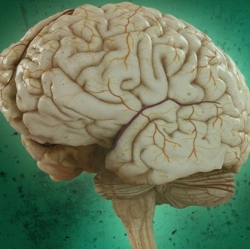
A tiny device that blocks pain caused by nerve damage is set to be implanted in sufferers of the condition within five to ten years, according to its creators. The device, known as an ion pump, uses organic electronics to deliver precise doses of the body’s own pain alleviators by converting electronic signals into biochemical ones.
This enables it to accurately block the pain signals from reaching the brain, and removes the need for pain medication that often carries unpleasant or even risky side-effects. “The ion pump can be likened to a pacemaker, except for alleviating pain,” said LiU Professor Magnus Berggren, who led the research.
The ion pump, which has already been successfully demonstrated in rats, sends neurotransmitters, the body’s own charged molecules that alleviate pain, to the precise area where the damaged nerves connect with the spinal cord.
The neurotransmitter in question, γ-aminobutyric acid (GABA), normally works in the central nervous system to block stimuli such as pain, making it ideal for use for this purpose. This stops the pain signals from ever getting to the brain, an achievement that will no-doubt be life changing for suffers of chronic pain.
